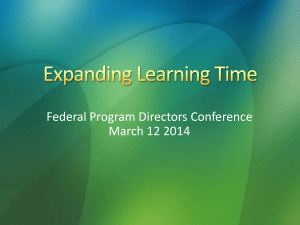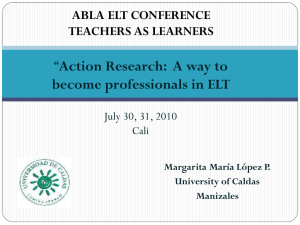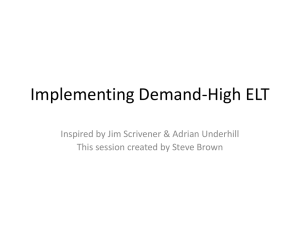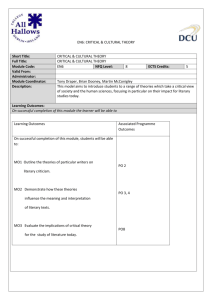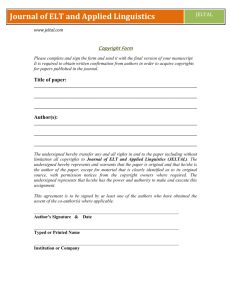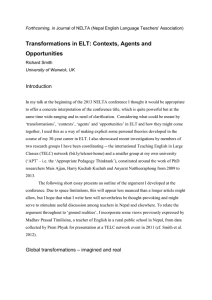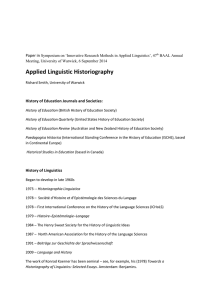MA ELT Programme Core modules overview Applied Linguistics
advertisement
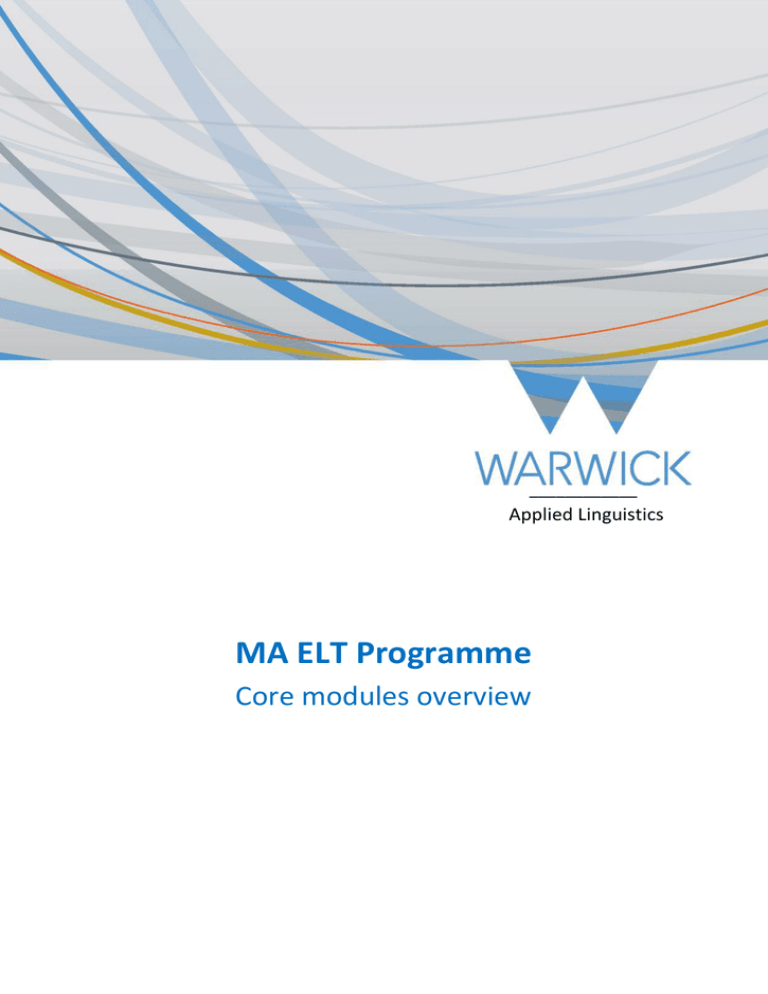
____________ Applied Linguistics MA ELT Programme Core modules overview ELT Methodology (for students with little or no teaching experience) This module aims to give you a basic theoretical and practical introduction to ELT (English language teaching) methodology. Emphasis will be placed on the value of reflection on your own learning (and, possibly, teaching) experience, as well as on the need to adapt recent developments and research findings to lesson planning for your own (future) teaching context. The module also aims, then, to enhance: (i) your capacity to critically reflect on and evaluate key concepts in ELT in the light of your own needs and experience, and (ii) your ability to develop appropriate skills, knowledge and attitudes for yourself as a teacher, in cooperation with others. Issues and Research in ELT (for students with substantial teaching experience) This module will enable participants to gain understanding of a range of issues and research perspectives in ELT in order to explore their contexts of learning and teaching and to bring about change in their pedagogic practice. By the end of the module, participants will be able to demonstrate the following: knowledge and understanding of the practices of language teaching and learning in relation to ELT research and applied linguistics; knowledge and understanding of the practices of language teaching and learning in relation to their own cultural and classroom contexts; knowledge of and ability to critically assess received approaches and innovations in ELT methodology; an awareness of recent developments in ELT methodology; an ability to plan research into their own language classrooms in order to enable appropriate change to take place. SLA and Classroom Language Learning This module aims to develop and extend students’ understanding of key theoretical approaches to Second Language Acquisition (SLA) with a particular focus on instructional contexts; learner characteristics and psychological processes affecting language learning; theories of learning underpinning instructional practices; and the classroom as a social environment. The module will use this theoretical knowledge base to analyse and critically evaluate current professional practice in second language learning and teaching contexts, and foster students’ skills in enabling their learners to learn efficiently and effectively. Students will be able to explore in depth an issue within the area of second language learning with particular relevance to their own professional context. Spoken English This module aims to develop skills in the collection, transcription and analysis of spoken language and will be a useful basis for students who wish later to focus on the analysis and development of materials in this area. The module will focus on capturing samples of speech for analysis and teaching purposes, exploring the relationship between context and the construction of talk, understanding different approaches to the analysis of spoken interaction, applying conversation analysis to spoken interaction, and identifying the main features of classroom interaction. Lexis and Grammar This module focuses on describing and analysing authentic texts from the combined perspectives of lexis and grammar. The overall framework is systemic-functional, which means that we will examine the ways that different word choices and grammar choices by language users work together to make meaning. We will consider word formation, clause structure, and lexico-grammatical patterns in texts. By the end of the module students should feel confident to use lexical and grammatical terminology to describe texts. The application of these ideas to learner language will be discussed where appropriate. Text and Discourse Analysis The overall aim of this module is to familiarise participants with a variety of purposes and tools for the analysis of written texts. We will seek to raise awareness of the social function of various written texts and discourses, to provide an introduction to the major theories of text and discourse, and to equip participants with the tools to analyse and understand the communicative effects of different texts. By the end of the course, participants should be able to select appropriate tools to analyse texts of their choice for purposes of their choice. Research Methodology (Terms 1 and 2) This module will extend throughout the winter and spring terms. It is intended to support students in their reading of research articles and to give them a broad overview of a range of methodologies appropriate to different types of applied linguistic research. It will also provide a basis for working on dissertations in the final phase of the course. Further Information and Contact Centre for Applied Linguistics University of Warwick Coventry CV4 7AL, UK Tel: +44 (0)24 7652 3200 Email: appling@warwick.ac.uk Web: http://www.warwick.ac.uk/al

